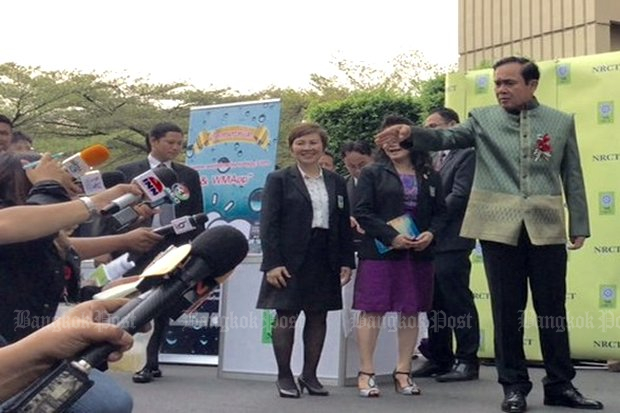
The National Reform Steering Assembly's (NRSA) media reform panel stood firm Monday behind its requirement that all media professionals apply for an operating licence under a controversial media bill.
The committee will meet today to come to a conclusion on the contents of the draft law, said Pol Gen Pisit Pao-in, deputy chairman of the NRSA's media reform steering committee.
Citing an observation by the NRSA's whip, Pol Gen Pisit said licensing the media is necessary and a key component of the bill, to uphold media rights, freedoms and ethics. In its current version, the bill says all reporters will need to obtain a professional licence, he said.
He added the details and rules of the licensing process are to be decided by the media professional council which will be promulgated by the new law. The proposal to set up the council has from the start encountered strong resistance from media organisations.
Five media organisations recently voiced their opposition to the bill, saying the council is unnecessary because the mainstream media, despite what the NRSA claims, has refrained from taking sides in times of political conflict.
Moreover, the media already has its own professional code of ethics and is also bound by Thai defamation, criminal, computer crime and other laws, said Mongkol Bangprapa, secretary-general of the Thai Journalists Association.
Pol Gen Pisit said media professionals working in the country will need their employers to issue them media credentials in the interim ahead of the council's launch.
"All members of the media will be required to have a licence and if any of them are caught reporting without one, he or she may face two years in jail and a 60,000 baht fine," he said.
But when the council is set up, all media professionals will be required to apply for a licence from the council, he said, adding applicants will also be required to pass an exam and undergo training as part of the application process.
Such a council would run the risk of becoming a channel for even higher levels of political intervention and conflicts in society, Mr Mongkol said.